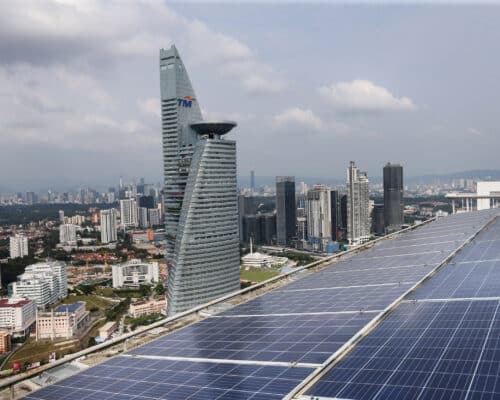Blog

A Bumpy Road Ahead for Malaysia’s Net-zero 2050 Ambitions
With diminishing oil and gas resources, costly fossil fuel subsidies and rising sea levels and temperatures, the pressure is on for Malaysia to pursue its net-zero targets.
Natural Gas Rules in the Philippines Ignore High Costs and Economic Consequences [Op-Ed]
The Philippines' Department of Energy’s draft proposes electric utilities procure an unspecified share of gas and LNG power. While some gas may be needed to operate its existing fleet, an expansion of LNG is not aligned with energy security and affordability goals.
Why K-pop Fans Are Taking on the World of Luxury Fashion
The issue of climate commitments in the luxury fashion industry is complex, as there are significant gaps in data available - with many luxury brands not disclosing their global supply chains, making it impossible to see the full scale of the issue. Luxury fashion houses have the power, social capital and assets to make meaningful climate commitments. For change to occur in the world of luxury fashion, it will have to start from the top.
Tata Power: Pioneering India’s Sustainable Energy Future
As one of the world's fastest-growing economies, India must take a leading role in embracing clean energy solutions to ensure a healthier future for its citizens and the planet. India’s energy transition requires mobilising significant financing from global capital providers, and Tata Power offers cues into how to do that effectively.

Where Is Oil Headed in 2023-2028: IEA Report – Video
The IEA Oil Analysis Report and Forecast 2023-2028 report says stabilisation is now occurring in oil markets after major disruptions in 2022.
Taking to the Streets of Jakarta, K-pop Fans Call Out Hyundai’s Greenwashing
KPop4Planet launched the "Hyundai, Drop Coal" campaign to call for Hyundai to live by its commitment to achieving net zero by 2045.
European Green Deal: What Asia Can Learn
Following the shining example of EU member states and designing policies similar to the European Green Deal can help developing Asia build a more resilient, sustainable and cost-efficient energy system.
Proposed Expansion of Gas Power in Asia Poses Climate and Economic Risks [Op-Ed]
Over 60% of global gas-fired capacity in development is based in Asia, with over half of this capacity concentrated in East and Southeast Asia. Rising costs saw around 81GW of previously planned capacity was cancelled between 2022-2023. There is still time to halt or limit the gas expansion in Asia, as around 70% of the gas-fired capacity is still in the announcement and pre-construction stages.
Japan’s GX Strategy and Southeast Asia – Video
Japan's GX strategy has been criticised for extending the life of fossil fuel-based technology like gas and coal in Southeast Asia.
Africans Want Renewables, Not Fossil Fuel Funding from G7
With Japan’s leader touring Africa, pressure is growing on G7 nations to support clean energy development on the continent rather than oil and gas.
Japan’s G7 Push for Gas Investments – Video
Japan's G7 push for more investments in to fossil fuels has received a cold response from other nations in the group.

The Growing Burden of Japan’s Climate Change Impact
Japan’s climate change impact is disrupting people’s lives as heat and humidity create increasingly dangerous conditions in the island country. As the country prepares for the 2023 G7 presidency in May, it will need to convince the world that it can achieve its pledge of carbon neutrality by 2050.
Indonesia Dances Around Taxonomies to Mobilise Capital for Its Coal Phaseout Programmes
Since Indonesia signed the US$20 billion Just Energy Transition Partnership (JETP) agreements late last year, the government has mobilised multiple workstreams to create policy structures to support the critical first stage of early coal retirement. However, more than mere tweaks to criteria for supporting early coal retirement may be required.
What Does an Ambitious Clean Energy Target Mean for Bangladesh?
Bangladesh’s existing power system can incorporate a significant amount of renewable energy, the country needs to invest steadily in clean energy to reach the 40% generation capacity goal. The economic competitiveness of renewable energy also makes it a favourable choice in the future.
Most Popular
Categories
-
9
-
33
-
126
-
4
-
17
-
43
-
52
-
11
-
10
-
15
-
24
-
6
-
6
-
250
-
196
-
14
-
23
-
1
-
1
-
23
-
38
-
42
-
84
-
18
-
82
-
41
-
17
-
10
-
40
-
43
-
86
-
284
-
21
-
40
-
35
-
10
-
41
-
36

